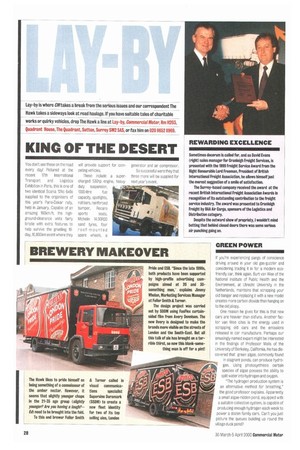GREEN POWER
Page 30

If you've noticed an error in this article please click here to report it so we can fix it.
If you're experiencing pangs of conscience driving around in your old gas-guzzler and onsidering trading it in for a modern ecofriendly car, think again. Burt van Wee of the National Institute of Public Health and the Environment, at Utrecht University in the Netherlands. maintains that scrapping your old banger and replacing it with a new model creates more carbon dioxide than hanging on to the old jalopy.
One reason he gives for this is that new cars are heavier than old'uns. Another factor van Wee cites is the energy used in scrapping old cars and the emissions released in car manufacture. Perhaps our amusingly-named expert might be interested :n the findings of Professor Melis of the University of Berkeley, California. He has discovered that green algae, commonly found in stagnant ponds, can produce hydro
gen. Using photosynthesis certain
species of algae possess the ability to
Split water into hydrogen and oxygen.
"The hydrogen production system is an alternative method for breathing," the good professor explains. Apparently a small algae-ridden pond, equipped with a suitable collection system, is capable of producing enough hydrogen each week to power a dozen family cars. Can't you just picture the queues building up round the village duck pond?
















































































































